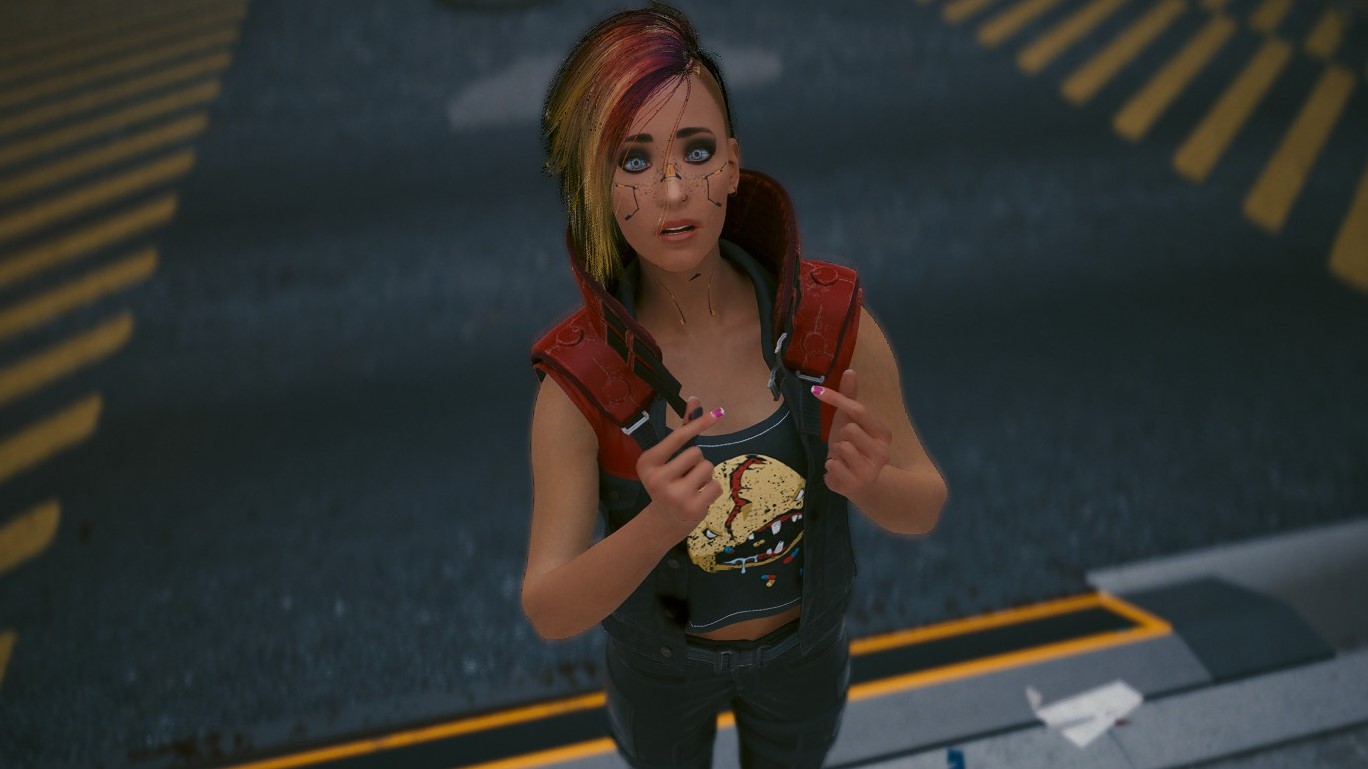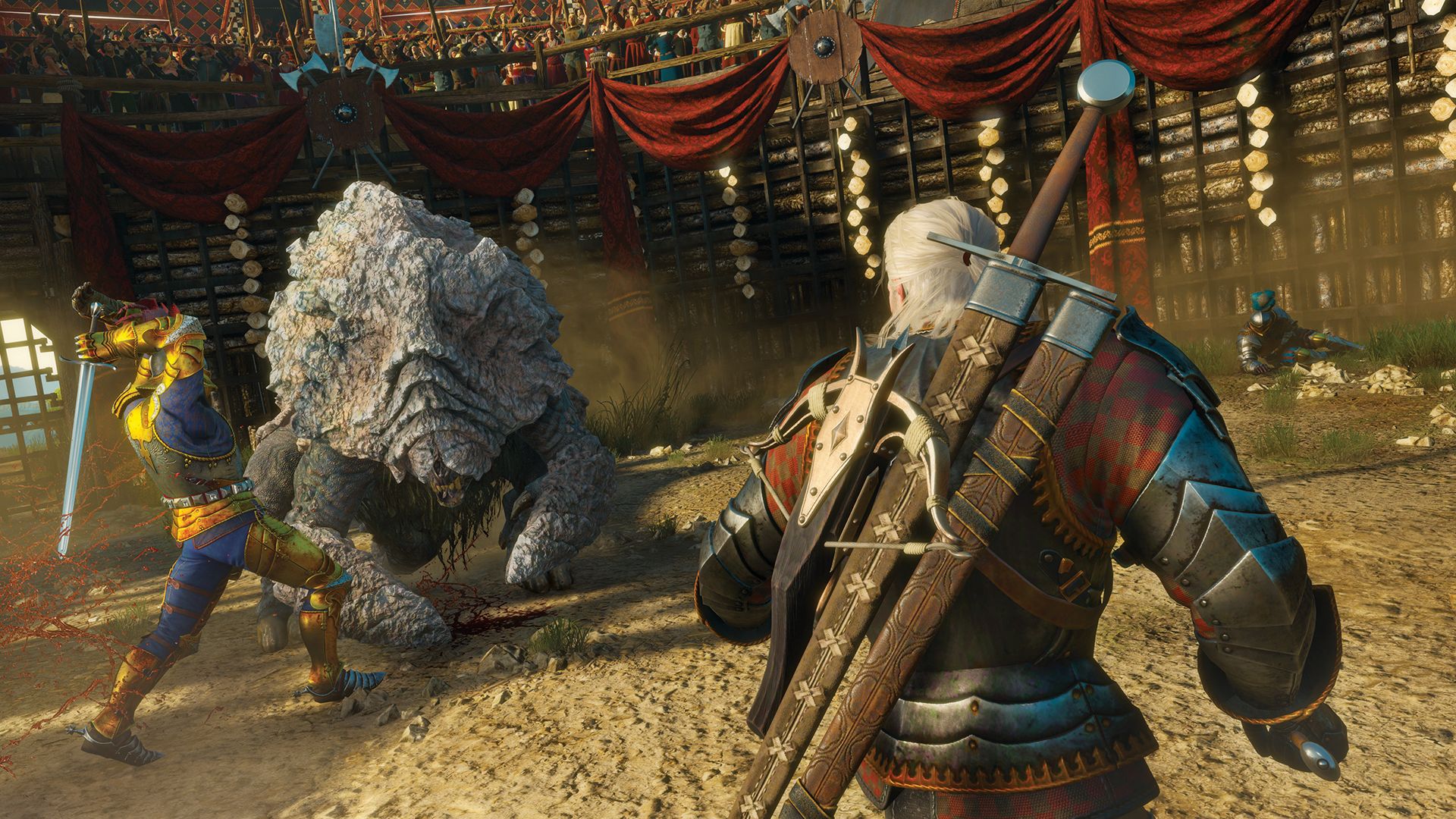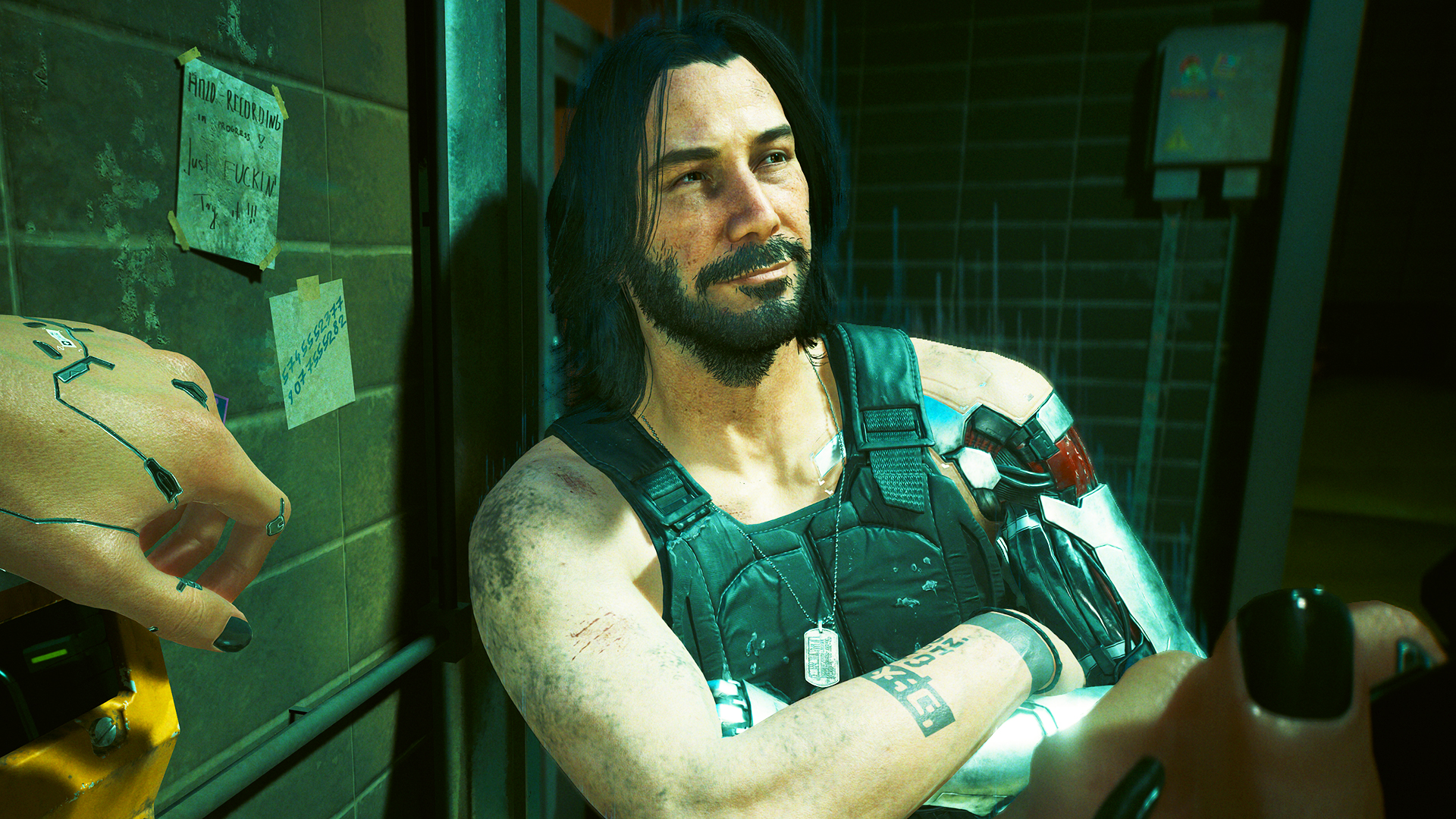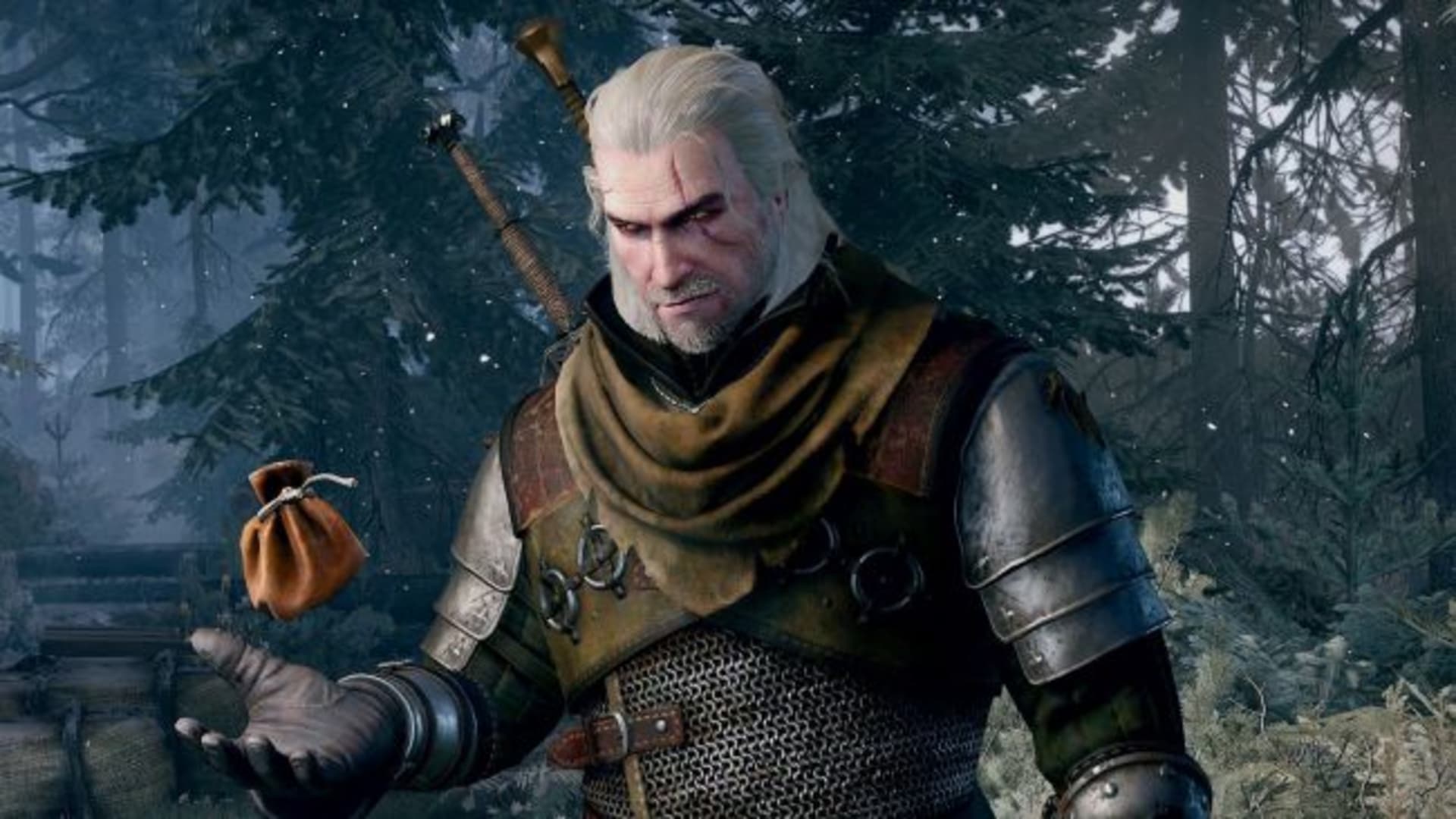Cyberpunk 2077's redemption is complete, but the future remains murky for CD Projekt
Despite a wide slate of games in development, it feels like the company's starting over from scratch.

It's official: Cyberpunk 2077's redemption arc is complete. It feels like after three years of flagellation, CD Projekt can finally move on. But I can't help but think the company's future is still murky.
The Witcher 3 was a masterpiece, firmly establishing CDP's original studio, CD Projekt Red, as one of the best RPG development teams of all time. It felt like the beginning of a shining new era for the company—but it was also the end of The Witcher. With Geralt's story finished so completely that we even got to see him retire to a vineyard in the south of France, it was time for something new.
After an eight year wait, we got that, in the form of Cyberpunk 2077—but its launch was such a debacle that the studio had to spend years focused just on fixing both the game and its own tattered reputation. Though 2.0 has successfully turned the game into something closer to players' original expectations, it'll always be remembered as a disaster first and a good RPG second.
That leaves CDP in the unenviable position of having two core brands that are both pretty difficult to build a future for.
With The Witcher, the company is essentially starting over again on hard mode, needing to develop a new cast of characters and hoping they can resonate as strongly as some of the most beloved RPG protagonists ever, drawn from a beloved book series. How strong is people's affection for that world outside of their love of Geralt, Ciri, and pals? CDP's going to have to find out.

And though Cyberpunk 2077's story has only just begun, any sequel will be arriving under a weighty shadow. Any bugs or flaws will be judged twice as harshly; but any reduction in ambition or scope will be seen as a step backwards. The first game was the victim of one of the most intense hype trains we've ever seen, but its follow-up may have an even more difficult time pleasing its audience.
Faced with those two quandaries, I think I'd be regrouping and taking cautious steps. Instead, CDP has expanded with multiple new studios, and announced a huge slate of projects, all so early in development they only have codenames. Let's run them down:
The biggest gaming news, reviews and hardware deals
Keep up to date with the most important stories and the best deals, as picked by the PC Gamer team.
Project Polaris (The Witcher)
Developer: CD Projekt Red
A full Witcher sequel from the original studio, described as the start of a new trilogy.
Project Orion (Cyberpunk 2077)
Developer: CD Projekt Red North America, CD Projekt Red Vancouver
The task of making a sequel to Cyberpunk 2077 falls to the new Boston and Vancouver studios.
Project Sirius (The Witcher)
Developer: The Molasses Flood
A spin-off project from a small studio CDP gobbled up in 2021, previously known mainly for modest survival game The Flame in the Flood.
Cyberpunk 2077 "live action project"
Developer: Anonymous Content
Is it a TV show? Is it a film? All we know is it will tell "a brand new story" in Night City, though production company Anonymous Content has a good track record.
Project Canis Majoris (The Witcher)
Developer: Fool's Theory
A remake of the first Witcher game, developed by an external studio but with "CDP's full creative supervision".
Project Hadar
Developer: CD Projekt Red
A brand new IP, being built from scratch at CDP's original studio alongside Project Polaris. Concept work began in 2021, but even now it seems like it's still at the world-building stage.

That's a lot of projects for any company to spin-up at once, and almost all of them give reason for healthy scepticism. The Cyberpunk 2077 sequel in the hands of the untested US studios; the original Warsaw studio juggling both a new take on The Witcher and creating an entirely new series; a Witcher spin-off that's already been through development troubles before we've even learned its name; a full remake of the first game in the hands of a largely unknown outside developer that's never attempted anything of that scale before. There are no sure bets here.
"Whenever you consider us, you think of us as game developers. That's true but it's not the full truth," said chief commercial officer Michal Nowakowski at an investor's presentation earlier this month. "We want to be popular culture developers."
I get it, every company wants to be a multimedia empire these days, and with the success of projects like the Edgerunners anime and the Witcher TV series (recent casting drama aside), I can understand why CDP would be feeling bold in that vision. But all of that success is built on a core business of games development, and statements like these make me worry the company doesn't realise quite how on the back foot its studios are right now.

I look at CD Projekt in 2023 and I see a company that's in many ways back at square one, whether it knows it or not. The Witcher needs a whole new cast and perspective; Cyberpunk 2077 needs to redefine what it is and escape the shadow of its own debut; even their core tech is new to them, with a switch over from the Red Engine it's been using since 2011's The Witcher 2 to Unreal Engine that's sure to be a challenge even if the team denies it's starting over from scratch. The company that made The Witcher 3 shouldn't be in the position of having to near-completely rebuild its standing just seven years later, but that's the situation it's in.
I look at that slate of projects, and the thing that I'm most optimistic for is Hadar. A whole new setting, built from the ground up by CD Projekt Red—finally something entirely the studio's own. There's the possibility there for a truly fresh start, free from the baggage of their two current flagships—working with a world designed from day one to complement CDPR's incredible strengths as an RPG developer. It's a really exciting concept. But concept is exactly the stage that project seems to be at still, and given the timeline CDP works on, it could be a decade or more before we get to play it, if it comes to light at all.
I honestly am rooting for CD Projekt, and I'm certainly not foretelling its doom—it's a resilient company that's already endured a lot just to get to this point. It's just hard not to look at the obstacles set before it and see a rather murkier vision of the future than the company itself would like to imagine. After finally climbing the mountain that was rehabilitating Cyberpunk 2077, I'm sure many at CDP are ready for a well-earned break—but I can only see even more hard work to be done ahead.

Formerly the editor of PC Gamer magazine (and the dearly departed GamesMaster), Robin combines years of experience in games journalism with a lifelong love of PC gaming. First hypnotised by the light of the monitor as he muddled through Simon the Sorcerer on his uncle’s machine, he’s been a devotee ever since, devouring any RPG or strategy game to stumble into his path. Now he's channelling that devotion into filling this lovely website with features, news, reviews, and all of his hottest takes.

